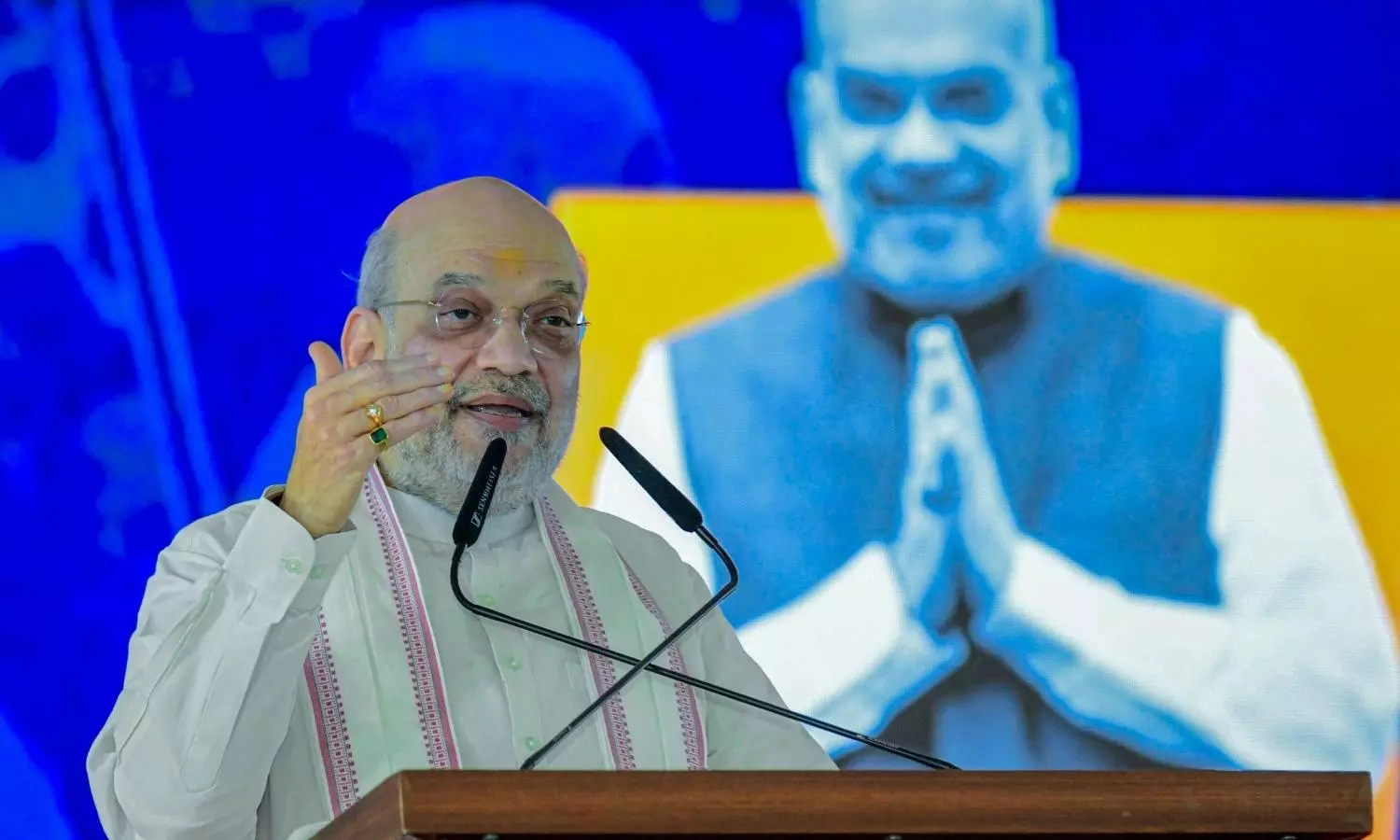
Amit Shah reiterated that the reforms would increase middle-class incomes by reducing taxes on essentials, healthcare items, electronics, and educational products. Photo: PTI
GST reforms to boost consumption, increase savings of middle class: Amit Shah
The Union Home Minister calls the new GST framework a 'trust-based tax system' that will boost both production and consumption and accelerate India’s growth

Union Home Minister Amit Shah described the new GST framework, which came into effect on September 22, as a “trust-based tax system” aimed at boosting both production and consumption.
In an interview with NDTV, Shah said the reforms would usher in a “new era of mutual trust” between citizens and the government.
Also Read: GST 2.0 comes into effect; kitchen staples, electronics, cars to be cheaper from today
Essentials made cheaper
Amit Shah pointed out that essential sectors — electricity, cement, food, healthcare, insurance, automobiles, tractors, and agricultural products — would become more affordable. “This is a landmark decision. People will start receiving benefits immediately. I believe this will increase production and consumption across the country,” he said.
Shah emphasised that the new GST model was not designed to expand government revenue but to ensure smooth functioning of the nation. “Whenever revenues rise, the government reduces the burden. Prime Minister Narendra Modi has made this bold decision. Citizens will trust that tax is not to increase the government's income. It is to run the country," he noted.
He highlighted that GST collections had risen from Rs 80,000 crore to Rs 2 lakh crore, underlining the system’s success. “Now it’s time GST gives relief to the public. Collections have increased, the system is stable, and people will benefit from lower costs,” Shah said, adding that revenues could even reach Rs 2.5 lakh crore in the future.
Also Read: GST reforms kick in today; reduced rates on wide range of goods, services
Amit Shah targets opposition
Taking aim at critics, Shah accused the Opposition of first dismissing GST as a “waste tax” before later claiming it as their own idea.
He noted that while Congress leaders like Pranab Mukherjee and P Chidambaram had discussed GST, they failed to implement it during their decade in power, whereas PM Modi rolled it out within four years.
He recalled that states had resisted GST under the Congress-led government, fearing revenue losses from merging 16 different types of sales taxes. Although the Centre had promised to compensate states, it did not provide a constitutional guarantee.
“Without a constitutional guarantee, how could anyone trust them? When PM Modi revived the discussions, then-Finance Minister Arun Jaitley assured that the states would receive a 14 per cent annual compensation guarantee for five years, which was honoured till last November. That’s why GST succeeded,” Shah said.
Also Read: PM Modi urges ‘swadeshi’ as GST reforms begin on Navaratri
'Relief for middle class'
In a post on X, Shah hailed the Next Gen GST reforms as a testament to PM Modi’s commitment to farmers, youth, women, and the poor. He said the cuts in GST rates would ease household budgets and accelerate India’s growth trajectory.
"The new reforms will further reduce their expenditures with drastic cuts in GST rates on a wide range of goods and will move the wheel of India's growth even faster on the path of becoming the most prosperous country in the world," he said.
He reiterated that the reforms would increase middle-class incomes by reducing taxes on essentials, healthcare items, electronics, educational products and ensuring that their savings rise constantly. “These measures will boost disposable income and encourage greater savings,” Shah added.

